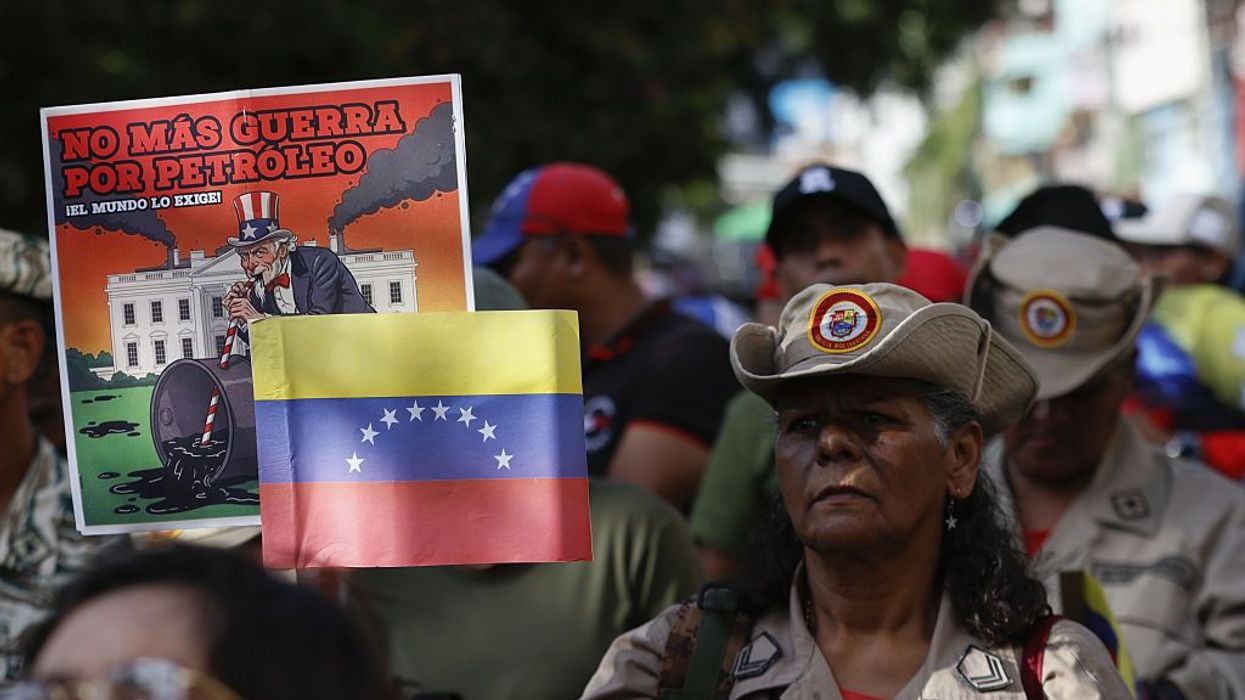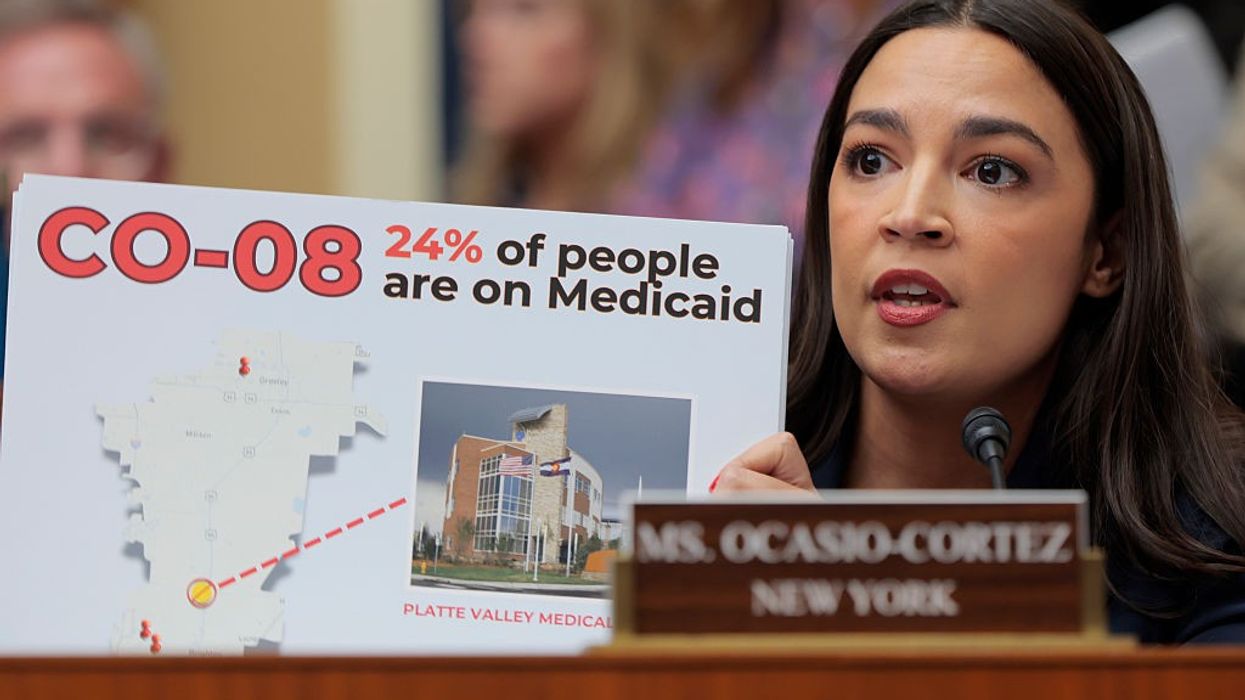September, 29 2008, 09:52am EDT

For Immediate Release
Contact:
Sarah Anderson, saraha@igc.org, tel: 202 234 9382 x 227
Chuck Collins, chuckcollins7@mac.com, 617 308 4433
Sam Pizzigati, editor@toomuchonline.org, 301 933 2710
See more information below.
Executive Pay Experts Critique Financial Bailout Bill
Institute for Policy Studies analysts say bill falls short on CEO pay
WASHINGTON
The draft bailout bill
released
yesterday contains several historic provisions that represent positive
steps
toward ending taxpayer subsidies for executive pay. But the bailout
bill ultimately
falls short on CEO pay - by failing to set a specific limit on the
compensation
of top executives at bailed-out companies.
The bill applies two different sets of executive compensation criteria,
depending on whether the government negotiates directly with the
institution to
purchase troubled assets or whether it purchases them through auction.
SUMMARY OF EXECUTIVE PAY PROVISIONS:
|
|
| No limits on pay |
| No criteria on clawbacks. |
|
|
| |
DETAILED ANALYSIS:
Major shortcoming: No set limits
on compensation
The key
bailout
bill provision on executive pay merely directs Treasury Secretary Henry
Paulson
to prevent "incentives" that encourage executives "to take unnecessary
and
excessive risks that threaten the value of the financial institution."
In other words, a bailed-out bank board of directors would be perfectly
free to
funnel $10 million into its CEO's pockets - unless Paulson decides that
reward
poses an excessive risk to the institution. The draft legislation, the "Emergency
Economic Stabilization Act of 2008," does not define what might
constitute
an "unnecessary and excessive risk."
"Congress missed a golden opportunity to use the leverage of the
bailout to put
tough controls on an out-of-control executive pay system," says IPS
Global
Economy Project Director Sarah Anderson. "Without clear limits on pay,
the
public is being asked to put their trust in Secretary Paulson, a man
who made
hundreds of millions of dollars as a Wall Street CEO, to decide what's
'excessive.'"
Several members of Congress had proposed fixed limits on pay. Sen. John
McCain
(D-Az.)
and Sen. Diane Feinstein
(D-Calif.) had called for capping compensation for bailed-out
executives at the
current compensation level of the U.S. President: $400,000. Rep. Henry
Waxman
(D-Calif.) had proposed a $2 million cap,
while Rep. Brad Sherman (D-Calif.) had advocated a $1
million cap on "plain vanilla" salary compensation.
The Institute for Policy Studies favors a lid on CEO pay set at 25
times the
pay of a bailed-out company's lowest-paid worker. The
current top federal paycheck - the
President's $400,000 annual compensation - represents about 25 times
the pay of
the federal government's lowest-paid employee.
"The most respected business thinker of the 20th century,
Peter
Drucker, considered the 25-to-1 ratio be the appropriate standard for
the
private sector as well," notes IPS Associate Fellow Sam Pizzigati. "Pay
gaps
too wide, management experts like Drucker believe, undermine enterprise
effectiveness and efficiency."
The Institute will be urging the Congress and President who take office
in
January to better define the bailout bill's limits on executive pay.
THE BAILOUT'S POSITIVES ON CEO PAY
Ban on "golden parachutes": Senior executive officers will not
receive any
severance payment if they leave the company that's getting bailout
dollars.
Congress is right to ensure that executives who drove the country into
this
mess should not be allowed to walk away with massive payoffs.
Cap on tax deductibility: Firms that participate in the bailout
will not
be allowed to deduct executive pay that exceeds $500,000 per year from
their
corporate income taxes. The current tax code places a $1 million cap on
tax
deductibility for executive compensation, but this provision has been
meaningless in practice because it allows exceptions for
"performance-based"
pay. Most companies simply limit top executive salaries to around $1
million
and then add on to that total various assortments of
"performance-based"
bonuses, stock awards, and other long-term compensation. The draft
bailout bill
attempts to close this loophole by eliminating that exception for
executives of
bailed-out firms.
Clawback: Executives of bailed-out firms who receive bonuses or
other
awards that later turn out to be based on "materially inaccurate"
financial
reports will need to give that money back. This hardly seems
like
something that would need to be legislated, but when it comes to
today's
corporate America,
Congress is right to not rely on executives to voluntarily give up
unearned
gains.
BROADER CRITIQUE OF THE BAILOUT BILL
For additional IPS analysis on the broader aspects of the bailout bill,
see: www.ips-dc.org.
These materials include an IPS
Plan to Pay for Recovery.
***
Sarah Anderson is the Director of the Global Economy Project at the Institute for Policy Studies and a co-author of 15 IPS annual reports on executive compensation. Contact: saraha@igc.org, tel: 202 234 9382 x 227.
Chuck Collins is a senior scholar at the Institute for Policy Studies where he directs the Program on Inequality and the Common Good. He was a co-founder of United for a Fair Economy, and his latest book, the co-authored The Moral Measure of the Economy, appeared earlier this year. Contact: chuckcollins7@mac.com, 617 308 4433.
Sam Pizzigati is an Associate Fellow of the Institute for Policy Studies and the author of Greed and Good: Understanding and Overcoming the Inequality That Limits Our Lives (Apex Press, 2004). He edits Too Much, on online weekly on excess and inequality. Contact: editor@toomuchonline.org, 301 933 2710.
Institute for Policy Studies turns Ideas into Action for Peace, Justice and the Environment. We strengthen social movements with independent research, visionary thinking, and links to the grassroots, scholars and elected officials. I.F. Stone once called IPS "the think tank for the rest of us." Since 1963, we have empowered people to build healthy and democratic societies in communities, the US, and the world. Click here to learn more, or read the latest below.
LATEST NEWS
63% of US Voters Oppose Attack on Venezuela as Trump's March to War Accelerates
The new poll comes as the US president openly plots to seize Venezuela’s oil supply.
Dec 18, 2025
President Donald Trump has taken increasingly aggressive actions against Venezuela in recent weeks, but a new poll released Wednesday shows US voters are not on board with a new war.
A new poll from Quinnipiac University found that 63% of voters oppose military operations inside Venezuela, with just 25% registering support.
What's more, a US military strike in Venezuela would draw significant opposition even from Republican voters, 33% of whom told Quinnipiac that they would oppose such an action. Eighty-nine percent of Democratic voters and 68% of independent voters said they were opposed to a US military campaign in Venezuela.
Trump's policy of bombing suspected drug trafficking boats in international waters, which many legal experts consider to be acts of murder, drew significantly less opposition in the new survey than a prospective attack on Venezuela, but it is still unpopular, with 42% in favor and 53% opposed.
A potential war is also unpopular with Venezuelans, as a recent survey from Caracas-based pollster Datanalisis found 55% opposed to a foreign military attack on their nation, with 23% in favor.
The Trump administration's boat strikes, which have now killed at least 99 people, have been just one aspect of its campaign of military aggression against Venezuela. The US military last week seized a Venezuelan oil tanker, and Trump has said that it's only a matter of time before the military launches strikes against targets inside the country.
Trump on Wednesday also said that one goal of his campaign against Venezuela would be to seize the country's oil supply.
“Getting land, oil rights, whatever we had—they took it away because we had a president that maybe wasn’t watching,” Trump said while talking to reporters. “But they’re not gonna do that. We want it back. They took our oil rights. We had a lot of oil there. They threw our companies out. And we want it back."
Venezuela first nationalized its oil industry in 1976, and the US has no legitimate claim to the nation's petroleum supply.
Keep ReadingShow Less
AOC Dismisses Premature 2028 Polls, But Says ‘I Would Stomp’ JD Vance
A survey this week showed the congresswoman leading the vice president 51-49 in a hypothetical presidential matchup.
Dec 18, 2025
Rep. Alexandria Ocasio-Cortez gave a cheeky reaction after a poll suggested that she'd slightly edge out Vice President JD Vance in a hypothetical presidential election in 2028.
The survey of over 1,500 registered voters, published Wednesday by The Argument/Verasight, showed Ocasio-Cortez (D-NY) leading Vance 51-49 and winning back several key voting demographics that propelled Trump's return to the White House last year.
As she walked out of the Capitol building Wednesday evening, the Bronx congresswoman was asked about the poll by Pablo Manríquez, the editor of Migrant Insider.
She responded to the question with a laugh: "These polls three years out, they are what they are. But, let the record show I would stomp him! I would stomp him!" she said before getting into her car.
Neither Ocasio-Cortez nor Vance has officially announced a presidential run. But Vance is considered by many to be a natural successor to President Donald Trump. The president and his allies have suggested he could run for an unconstitutional third term.
Ocasio-Cortez, meanwhile, is reportedly mulling either a presidential run or a bid to take down the increasingly unpopular Senate Minority Leader Chuck Schumer (D-NY).
More than two years out from a Democratic primary, Ocasio-Cortez is considered a likely choice to fill the progressive lane in 2028, with support for increasingly popular, affordability-focused policies, including Medicare for All.
However, despite her strong support among young voters, early polls show her behind California Gov. Gavin Newsom and former Vice President Kamala Harris for the Democratic nomination.
Wednesday's poll showed that in a hypothetical contest against Vance, Newsom had a 53% to 47% edge, a margin only slightly larger than Ocasio-Cortez's.
Keep ReadingShow Less
4 More Killed in Pacific Boat Strike as White House Ramps Up Demands for Venezuelan Oil
President Donald Trump “wants to keep on blowing boats up until Venezuelan President Nicolás Maduro cries uncle," said White House Chief of Staff Susie Wiles in a recent interview.
Dec 18, 2025
Hours after US House Republicans voted down a war powers resolution Wednesday aimed stopping the Trump administration from continuing its attacks on "presidentially designated" terrorist organizations, the death toll of the Pentagon's continued boat strikes was brought to 99 with the latest bombing in the Pacific Ocean.
US Southern Command reported Wednesday night that at the direction of Secretary of Defense Pete Hegseth, the military had killed four people in a "kinetic strike on a vessel operated by a Designated Terrorist Organization in international waters."
As with the rest of the more than two dozen bombings that the administration has carried out in the Caribbean and Pacific since September, the Pentagon said that intelligence had confirmed the boat was "engaged in narco-trafficking operations."
The White House has not released evidence that the boats it's targeted were carrying drugs. In the past, the US military has been involved in intercepting vessels suspected of drug trafficking and charging passengers with a criminal offense, but President Donald Trump has insisted the US is engaged in an armed conflict with drug cartels in the Western Hemisphere, including in Venezuela.
US and international intelligence agencies have not found Venezuela to be a significant source of drugs flowing into the US and have found the country to play virtually no role in the trafficking of fentanyl, the biggest cause of drug overdoses in the US.
The latest boat bombing came a day after Trump announced a "total and complete blockade" on oil tankers approaching and leaving Venezuela, accusing the country of stealing "Oil, Land, and other Assets" from the US.
Venezuela nationalized its petroleum sector in 1976, taking control of its own vast oil reserves. Previously, US-based companies had largely controlled the country's oil industry. In 2007, then-President Hugo Chavez further pushed out US oil giants such as Exxon Mobil when he nationalized foreign oil projects in Venezuela.
Stephen Miller, a top adviser to Trump, accused Venezuela's government of "theft" on Wednesday.
“American sweat, ingenuity, and toil created the oil industry in Venezuela,” Miller said in a social media post. “Its tyrannical expropriation was the largest recorded theft of American wealth and property. These pillaged assets were then used to fund terrorism and flood our streets with killers, mercenaries, and drugs.”
Regarding the blockade, Trump also said Wednesday that Venezuela "illegally took" US energy rights.
While the administration has insisted for months that its deadly boat strikes are aimed at stopping drug trafficking, comments from White House Chief of Staff Susie Wiles in an extensive Vanity Fair interview released Tuesday further confirmed that the White House aims to take control of the South American country.
Trump “wants to keep on blowing boats up until Venezuelan President Nicolás Maduro cries uncle," said Wiles.
Brian Finucane, senior adviser at the International Crisis Group, said Wednesday night's boat strike amounted to "more premeditated killing outside of armed conflict."
"There's a word for that," he said.
Legal experts have said the repeated, lethal bombings of boats have been part of a campaign of extrajudicial killings and have warned Hegseth and others involved in the attacks could be liable for murder.
Keep ReadingShow Less
Most Popular


